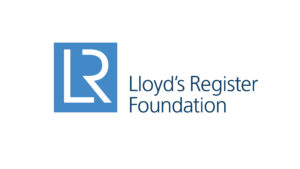World Risk Poll
Understanding and Informing Public Perceptions of Risk Around the World
Main photograph by Avijit Ghosh courtesy of Climate Visuals.
Since 2019, the LLoyd’s Register Foundation World Risk Poll has been conducted every two years, in order to gain insights into public understanding of risk and skills for safety around the world. Each year, nationally representative samples of participants have been surveyed in more than 120 countries around the world — including in countries where little or no survey data exists. Topics covered include severe weather, climate change, water insecurity, and other risks.
The Partnership
With support from the Lloyd’s Register Foundation, we are helping international organizations to access, analyze, and interpret the World Risk Poll.
The Challenge
Globally, people’s safety is threatened by climate change, water insecurity, diseases, and disasters. Public understanding of risk and skills for safety help people to anticipate, cope with, and recover from threats. Behavioral science provides insights about how to boost public understanding of risk and skills for safety. However, most insights only come from surveys in high-income countries, omitting the world’s most vulnerable populations.
Although the World Risk Poll provides the much needed evidence to inform international programs that keep people safe, most international organizations lack the time and resources to analyze the World Risk Poll. Moreover, most academics are not set up to help international organizations, due to focusing on academic rather than on practical research questions.
The Solution
We have been involved with the World Risk Poll since its inception, to ensure that it provides the evidence international organizations need to boost public understanding of risk and skills for safety. We work directly with international organizations to analyze the World Risk Poll – and turn its findings into action.
“The World Risk Poll covers countries in which risk surveys have never been done before” says professor Wändi Bruine de Bruin, who leads the USC Schaeffer Behavioral Science and Policy Initiative. “We analyze the World Risk Poll to answer the practical questions of the organizations that work there.”
The Approach
With input from our partnering international organizations, we analyze the World Risk Poll to produce actionable insights for their efforts to boost public skills for safety in countries vulnerable to severe weather, climate change, water insecurity, and other threats. Our analyses are grounded in behavioral science, a field that is focused on producing actionable insights. Professor Bruine de Bruin is a world-leading behavioral scientist with 30 years of experience in using insights from survey data into action.
Our first project focuses on public perceptions of climate change and severe weather. Our World Risk Poll analyses suggested that, worldwide, climate change concerns were more likely to be reported among people with higher education. Based on this insight, we worked with the United Nations Foundation to make climate change communications more understandable for individuals without higher education, across the 195 United Nations member countries. To reach organizations that communicate about climate change, we published our findings in a top climate journal, and presented our work at climate policy conference COP26. Questions from climate communicators led us to run a study that found that it is better to avoid unfamiliar words like “climate crisis,” “climate emergency,” or “climate justice.” We also used the World Risk Poll findings to inform a social science research agenda to accelerate public engagement with climate change adaptation.
Our second project focused on understanding and informing water insecurity around the world. For this project, we analyzed the World Risk Poll with Water Keeper Alliance, which aims to protect water quality on all continents. We found that, globally, people are less likely to link concerns about water insecurity to concerns about climate change than to concerns about severe weather. Ongoing analyses have shown that, across the world and in every world region, people who report water insecurity tend to get their information from local news and emergency services, feel unprepared for disasters, and find it hard to see the link between threats to their water and climate change. Our joint interview with Water Keeper Alliance for Smart Water Magazine describes key insights for water practitioners.
Our third project focused on the challenges of understanding numerical risks, also referred to as low numeracy. Around the world, low numeracy undermines financial well-being, especially for people living on low incomes. Our World Risk Poll analyses with Save the Children found that low numeracy makes numerical risks hard to understand for people around the world, at all levels of education. But using numbers is hardest for people who are older, and have no college education. To address low numeracy at home rather than in school settings, we worked with Save the Children to evaluate a text messaging program for promoting numeracy among,about 1800 families in the Philippines. Better numeracy skills were found in families where parents reported getting the texts – showing the promise of text messages for risk messages in populations with high and reliable cell phone use. We presented our findings for risk practitioners at Understanding Risk Asia, in a presentation called “Improving risk know-how for low-numerate audiences.”

To engage with the project team, please contact Public Exchange Project Manager, Carling Monder
monder@usc.edu
Academic Journal Publications
Public perceptions about severe weather and climate change:
Bruine de Bruin, W., Sleboda, P., & Gatiso, T. G. (2024). Global public concerns about climate change: the role of education, direct experience, and indirect experience. Journal of Risk Research, 1–15
Harcourt, R., Dessai, S., Bruine de Bruin, W., & Taylor, A. (2023). A social science research agenda to accelerate public engagement in climate change adaptation. Frontiers in Psychology, 14, 1286525.
Bruine de Bruin, W., & Dugan, A. (2022). On the differential correlates of climate change concerns and severe weather concerns: Evidence from the World Risk Poll. Climatic Change, 171, 1-24.
Public perceptions of water insecurity:
Miller, J.D., Staddon, C., Salzberg, A. et al. (2024) Self-reported anticipated harm from drinking water across 141 countries. Nature Communications 15, 7320
Inwald, J., Bruine de Bruin, W., Yaggi, M., & Arvai, J. (2023). Public concern about water safety, weather, and climate: Evidence from the World Risk Poll. Environmental Science & Technology, 57, 2075-2083.
Public understanding of numerical risks (numeracy):
Bruine de Bruin, W., Ulqinaku, A., Llopis, J., Rava, M. (2023). Beyond high-income countries: Low numeracy is associated with older adult age around the world. Medical Decision Making: Policy & Practice, 8, 1-7.
Bruine de Bruin, W., & Slovic, P. (2021). Low numeracy is associated with poor financial well-being around the world: Evidence from the World Risk Poll. PLOS One, 16, 1-15.
Media and Outreach
Learn More about the Project:
- Blog post on “Using behavioural science to inform risk communications” posted by Lloyd’s Register Foundation
- Podcast on “The Future of Risk Post-Covid” by the Global Safety Podcast
Insights for Climate Change Communications:
- Video of outreach workshop “How to tackle climate change through organizational change” hosted by Q5
- Video of outreach workshop “Using insights from behavioral science to design better climate change communications” hosted by Save the Children
- Video of conference presentation “On the diferential predictors of climate change concerns and severe weather concerns” as given at the European Association for Decision Making 2021 and the Society for Risk Analysis 2021
Insights for Water Communications:
- Joint interview with Water Keeper Alliance for Smart Water Magazine
Insights forNumeracy Interventions:
- Article in The Conversation “People who are bad with numbers often find it harder to make ends meet – even if they are not poor“
- Video of presentation for risk practitioners at Understanding Risk Asia “Improving risk know-how for low-numerate audiences” Low numeracy around the world: Implications for financial
- Video of conference presentation “Low numeracy around the world: Implications for financial well-being” at the Psychonomic Society 2021
Project Team Members




Carling Monder
Public Exchange
Project Manager

Monica Dean
Public Exchange
Practice Director, Climate & Sustainability

Kate Weber
Public Exchange
Executive Director

Marianna Babboni
Public Exchange
Senior Project Manger
Newsroom





